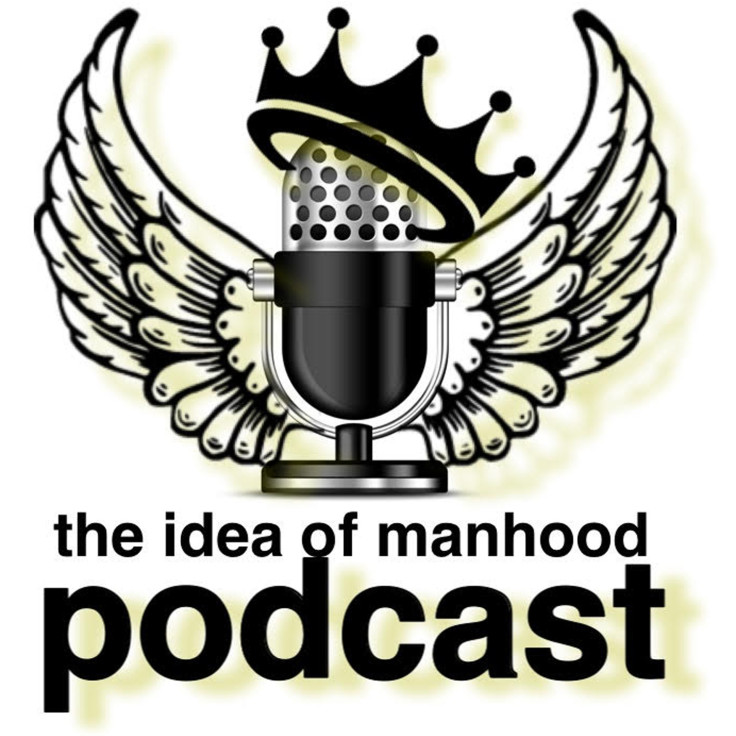
For the past few years, mainstream Western society has been at a major crossroads when it comes to race and gender issues. The murder of George Floyd, and many other Black individuals before and after him, has ignited numerous protests and opened discussions on the prejudices faced by Black people. Black men, in particular, are always seen as suspect. In fact, the wider public's view of Black men is limited to three categories – if they're not criminals, they're either athletes or entertainers. There's not much space in between.
These are just some of the issues explored by Mike "Fivemikes" Andrews, an educator, writer, podcaster, and MC with a unique perspective on life thanks to his diverse history. Born in Brooklyn, New York, Mike was raised by a single mother after his parents, who both immigrated from the Caribbean, separated. Mike's mother later married his stepfather, who joined the military, and was later assigned to Germany. During his middle school years, Mike was a 'military brat' in Germany, and he credits this period with widening his worldview by exposing him to so many different cultures and experiences.
Mike later moved back to the US and attended high school in Virginia, eventually studying at James Madison University (JMU) for undergraduate degrees in Psychology and Sociology, While he was in university, a particular experience awakened Mike's interest in education and the experiences of Black people, particularly Black fathers. He worked as a counselor for a program called the Academy for the Achievement of African-American Males.
"I learned about working with young people and the importance of having role models," Mike says. "I realized I had a talent for it, and I was able to connect with the boys and their parents. I actually wished that I had a similar experience when I was their age, and that influenced my decision to go to graduate school, and I stayed at JMU to obtain a Master of Education in College Student Personnel Education."
After graduating, Mike worked at various campuses, often as a counselor helping students transition from high school to college. He says that his natural ability to connect with people helped him tremendously at these jobs, which included an organization that focused on helping families and schools to better communicate with one another.
"I began placing greater thought on the concept of Black manhood after I got married and became a father," Mike says. "I wanted to be different from how my father was – I wanted to be more active and more present. I began looking for learning resources about fatherhood, but there weren't many of them at that time, which was around 2005 to 2006."
While living in Washington, DC, Mike wrote and performed poetry and served as a master of ceremonies for programs around the city. One of his poems, titled The Idea of Manhood, was well-received by audiences and garnered significant attention, inspiring Mike to lend his voice to have more nuanced conversations about manhood, about being a Black man and being a father, during a time when there were few people talking about those topics. He then began a podcast of the same name as the poem in 2017.
"I was very consistent with my podcast at the beginning. I recorded every week and most of my episodes were almost two hours long," Mike says "Podcasting really felt therapeutic for me, and I was just getting a lot of positive feedback. Many Black men, especially dads, would reach out to me, thanking me for voicing what they had been feeling or introducing them to a new perspective. That just fueled me to keep going."
Eventually, Mike took a hiatus from podcasting when he started studying for his Doctorate in Education Policy and Leadership at American University. On March 22, 2024, he successfully defended his dissertation, which focused on the underrepresented narratives of Black fathers in their children's academic journeys. His research sought to challenge existing stereotypes and enrich the discourse around the integral role of Black fathers in educational settings. He used qualitative methods such as affinity-based focus groups and photovoice, where he asked study participants to take pictures of themselves while engaging with their children in support of their education, and he categorized these photos and looked for themes.
"I noticed and experienced that schools were actively disengaging from Black fathers, and they were defaulting to the mothers. We were unwelcome in our children's academic lives, and it felt like we were being watched and ignored at the same time," Mike says. "Doing my doctorate research was a really powerful experience. It demonstrated that Black dads are active and present. They're even sometimes more active than moms are in certain ways. And, having the imagery to support that is just so powerful."
With his doctorate to be officially conferred this May, Mike's new credentials will enhance his podcast, allowing him to integrate insights from his research and offer listeners a deeper understanding of educational policies and their impacts on family dynamics.
According to Mike, The Idea of Manhood podcast will continue to serve as a catalyst for conversations that challenge conventional notions of manhood and promote a more inclusive understanding of what it means to be a Black man in today's society.






